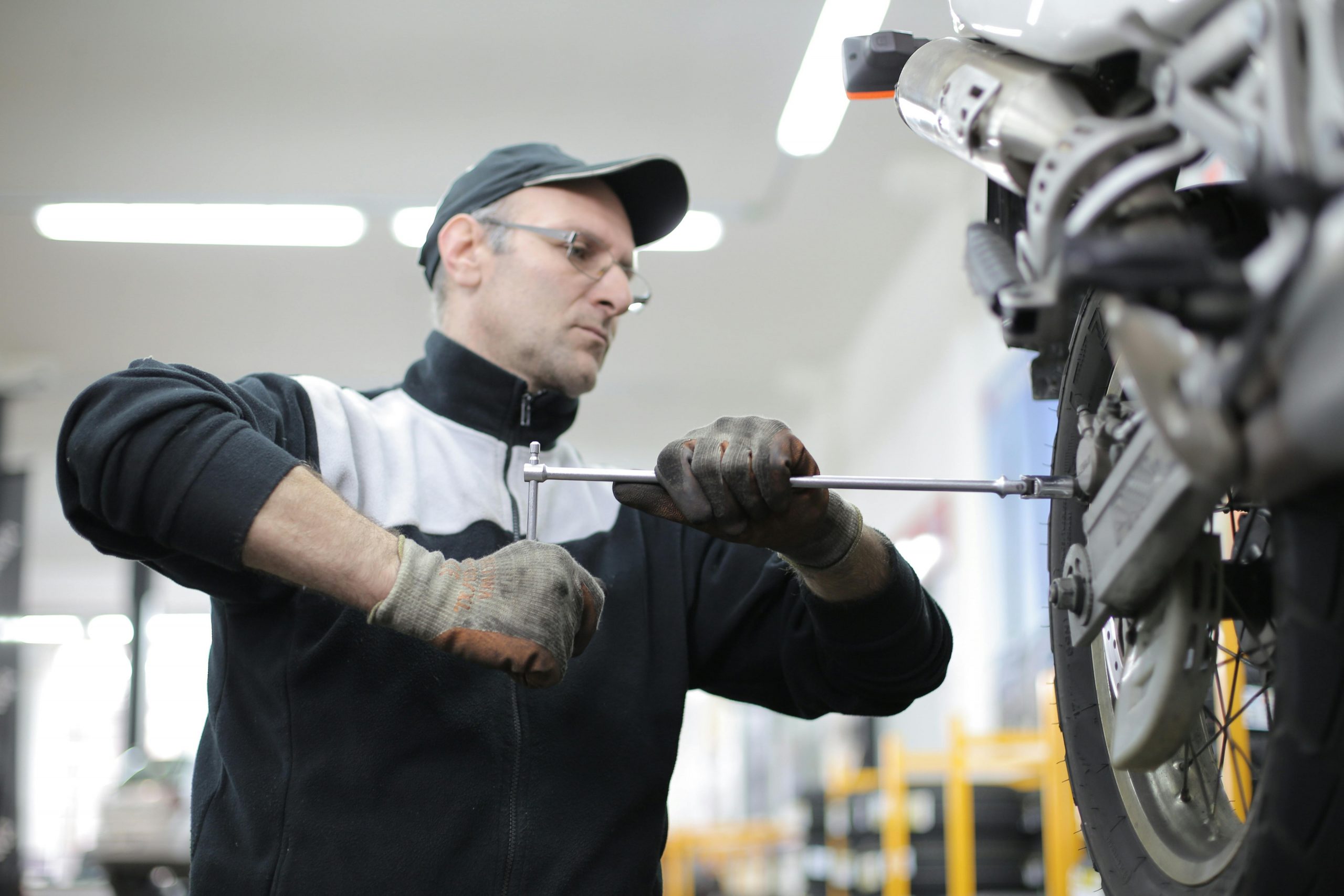Highlights
- Always ask for a detailed written estimate before approving any repairs.
- Understand the warranty coverage on parts and labor before agreeing to service.
- Verify the shop’s certifications, especially ASE or manufacturer authorization.
- Request updates and approval for any additional repairs before they’re done.
- Ensure you know how the shop handles diagnostics and labor charges.
- Compare quotes to make sure you’re getting fair, competitive pricing.

Approving car repair work without the right information can lead to unnecessary costs, subpar repairs, or confusion about what’s actually being done to your vehicle. Whether you drive a daily commuter or a high-performance car, understanding how to navigate conversations with your mechanic ensures you get transparent, quality service.
This guide walks you through the top questions to ask before approving car repair work—covering topics like estimates, warranties, certifications, and communication—so you can make confident, informed decisions every time you visit the shop.
Why Asking Questions Before Repairs Matters
Many vehicle owners make the mistake of approving repairs without fully understanding the scope, cost, or implications. Doing so can result in overpaying, getting unnecessary parts replaced, or voiding warranties.
Taking time to ask questions before approving repairs helps:
- Prevent surprise costs and hidden fees.
- Clarify the exact work being done on your car.
- Ensure the parts and fluids used meet manufacturer standards.
- Protect your existing warranties or extended service plans.
- Build trust with your mechanic and ensure accountability.
A car repair shop that provides a price-match guarantee on oil changes and diagnostics often values transparency and customer trust—two signs of a shop that welcomes questions and ensures clarity before repairs begin.
Question #1: Can You Provide a Detailed Written Estimate?
Before you approve any repair work, always ask for a written estimate. This should clearly outline:
- The cost of each part being replaced or serviced.
- Labor charges and hourly rates.
- Any diagnostic fees.
- Applicable taxes or shop fees.
A reliable repair shop should not hesitate to provide this breakdown. If a shop only gives verbal quotes or refuses to itemize charges, that’s a red flag.
Pro Tip: Compare this estimate with at least one or two other shops to make sure the price is fair. You might be surprised how much variation exists between providers for the same service.
Question #2: What Warranties Do You Offer on Parts and Labor?
Understanding warranty coverage helps you gauge the shop’s confidence in their work. Always ask:
- What is the duration of the warranty on parts and labor?
- Does the warranty cover both manufacturer defects and installation errors?
- Is the warranty transferable if you sell the vehicle?
For example, a reputable shop might offer 12 months/12,000 miles or even 36 months/36,000 miles of warranty coverage on both parts and labor.
If a shop can’t explain their warranty clearly, it’s best to walk away. Strong warranty coverage is often a sign of skilled technicians and high-quality materials.
Question #3: Are Your Technicians Certified and Experienced?
The quality of your car repair depends largely on who’s performing the work. You should always verify if the technicians are certified by organizations like:
- ASE (Automotive Service Excellence) – A national standard for automotive repair expertise.
- Manufacturer Certifications – Such as Toyota, Ford, BMW, or Lexus factory training.
- Local or State Licensing – Required in some regions for emissions and safety repairs.
Certified technicians are more likely to diagnose problems accurately and perform long-lasting repairs using approved methods and tools.
Question #4: How Do You Communicate Additional Repairs or Findings?
It’s common for mechanics to find additional issues once they begin working on your car. However, that doesn’t mean they can proceed without your consent.
Ask your shop how they handle authorization for additional repairs. For example:
- Do they call, text, or email before performing extra work?
- Will they provide photos or videos to verify the issue?
- How long will they wait for your response before proceeding?
Transparency in communication builds trust and ensures you stay in control of repair costs.
Question #5: What Type of Parts Will Be Used—OEM or Aftermarket?

Not all replacement parts are equal. The type of parts used can affect your car’s performance, longevity, and warranty coverage.
Here’s what you need to know:
- OEM (Original Equipment Manufacturer) parts come directly from your car’s manufacturer and are usually more expensive but guaranteed to fit and perform as intended.
- Aftermarket parts can be cheaper and sometimes just as effective, but quality varies by brand.
- Remanufactured or recycled parts can be a budget-friendly and environmentally friendly option, though they may come with shorter warranties.
Always confirm the shop’s policy on parts and ask if you can choose which type you prefer.
Question #6: How Do You Handle Diagnostics and Testing Fees?
Before repairs start, many shops charge a diagnostic fee to identify the issue. However, this fee structure varies widely.
Ask these questions:
- Is the diagnostic fee included in the total repair cost?
- What equipment is used to test and verify problems?
- Will you provide a detailed report of the diagnostic findings?
Reputable shops use advanced tools like OBD-II scanners and manufacturer-specific software to ensure accuracy. Paying for diagnostics is normal, but make sure it’s fair and transparent.
Question #7: Can I See the Old or Replaced Parts?
A trustworthy shop will gladly show you the parts they replaced—especially if you ask before the work begins.
This helps you confirm:
- That parts were actually replaced.
- The condition of the old components.
- Whether the replacement was necessary.
If the shop hesitates to return old parts or show evidence of replacement, that’s a red flag.
Question #8: Do You Provide Updates During the Repair Process?
Communication is essential for peace of mind, especially when repairs take longer than expected. Ask whether the shop provides:
- Progress updates via text or email.
- Estimated completion times before the repair begins.
- Photos or videos showing repair progress.
The best repair shops treat their customers like partners, not bystanders. Keeping you informed throughout the process builds confidence and eliminates confusion.
Question #9: What Payment Options or Financing Plans Are Available?
Car repairs can be costly, and flexible payment options can make a big difference. Before approving any work, ask:
- Do you accept major credit cards or offer payment plans?
- Is financing available for larger repair bills?
- Are there discounts for cash payments or loyalty customers?
Some shops also offer membership programs that include routine maintenance, free inspections, or discounts on future repairs—helping you save money long-term.
Question #10: How Do You Handle Customer Complaints or Follow-Up Issues?
Even with the best technicians, problems can arise after a repair. A quality shop will have a clear process for resolving complaints or addressing follow-up issues.
Ask about:
- Response time for post-repair concerns.
- Whether they recheck your car for free if a problem reoccurs.
- How warranty claims are processed.
This helps ensure you’re not left stranded if something goes wrong after leaving the shop.
Comparing Quotes and Guarantees
Before committing to any repair, it’s wise to compare quotes from multiple shops. Price-matching guarantees, detailed warranties, and transparent policies can help you identify trustworthy providers.
If you find a car repair shop that provides a price-match guarantee on oil changes and diagnostics, it’s often a good indicator that they value fair pricing and customer satisfaction—qualities that can help you avoid inflated or unnecessary repair costs.
Building a Long-Term Relationship with Your Mechanic
Finding a trustworthy mechanic isn’t just about one visit—it’s about building a long-term relationship based on mutual trust. Once you find a reliable shop:
- Stick with them for all your maintenance and repairs.
- Keep records of all services and warranties.
- Provide honest feedback—good or bad—to help improve service.
Consistent visits allow your mechanic to better understand your vehicle’s history and identify potential issues early, saving you time and money.
Conclusion
Approving car repair work doesn’t have to be intimidating. By asking the right questions—from estimates and warranties to certifications and communication policies—you ensure transparency, fairness, and high-quality results.
Remember, a trustworthy mechanic will never pressure you into decisions and will always welcome your questions. The more informed you are, the better your experience will be.
Your car is one of your most important investments—so take the time to protect it with knowledge, care, and a reliable repair partner.
